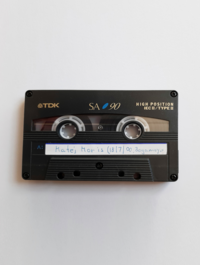Missed Encounters from the Field: Stories from the Researcher's Notebook
Exhibition with contributions by Katrin Bromber, Sana Chavoshian, Aksana Ismailbekova, Jasmin Mahazi, Samuli Schielke, Magdalena Suerbaum
Curated by Michael Baers
Sound editing by Mariam Abou Ghazi
Recording, mixing and mastering by Mattin
Missed Encounters from the Field: Tales from the Researcher's Notebook will preview with a reception from 5 to 8 pm on 29 November and will run until 15 December.
What kind of information is inadmissible in social science research? In part this is a rhetorical question, as information gathered during fieldwork is not a stable resource but contingent on all sorts of variables, from the researcher’s charm and discretion, to the sensitivity of the topic being researched, to the political situation existing in a given country. The exhibition, Missed Encounters from the Field: Tales from the Researcher's Notebook, presents oral accounts of researchers’ experiences in the field, highlighting stories where members of the Age and Generation research unit at Leibniz-Zentrum Moderner Orient encountered difficulties that complicated their ability to incorporate findings into their work. With respect to the research focus of the unit, these difficulties extend to failures to articulate what is lost across generations, or, a more general problem, what is lost across geographical distances—between migrants and their home societies or readers in receiving societies. Instances of such difficulties might be as banal as failing to get something on tape (or believing one had done so), to coming across material that is simply too politically sensitive to incorporate within published findings, to distorting findings when presenting these to peer audiences.
Working with the idea of missed or inadmissible data also relates obliquely to broader questions around the admissibility or inadmissibility of research sources, to hearsay, and to types of knowledge not transmitted from one generation to the next, which remain secret or get transmitted in a distorted form. This last category redounds in particular upon questions of how personal and collective histories are transformed over time into myth, tradition, or sociopolitical power structures. But it also relates, to take a psychoanalytic tack, to the imaginary dimension of fieldwork involving human subjects, where every interview/encounter is doubly fictitious, made so by the interviewer's initial experience and subsequent recollection.
Installed within ZMO’s atrium, the exhibition consists of two parts. Recorded accounts taken from individual researchers’ fieldwork will be presented alongside a collection of research “artifacts” collected in the course of doing fieldwork. To turn the gaze on the researcher is to enact a sort of Verfremdungseffekt on scientific objectivity and the habitus of the researcher, and also to play with the notional difference between fact and fiction, or the differential between the desire of the researcher to learn something and the research subject to communicate something.
Guests are able to visit during ZMO’s regular office hours: Monday to Thursday, 9am – 5pm, Friday 9am – 3pm.
Please bring the headphones you normally use with your mobile phone!
HERE you can access the audio files of the exhibition.

Details
Leibniz-Zentrum Moderner Orient, Kirchweg 33, 14129